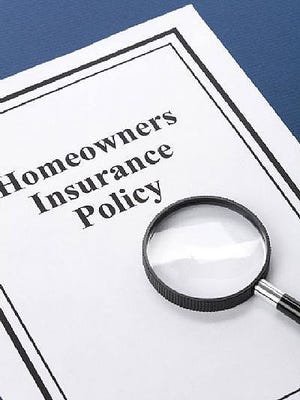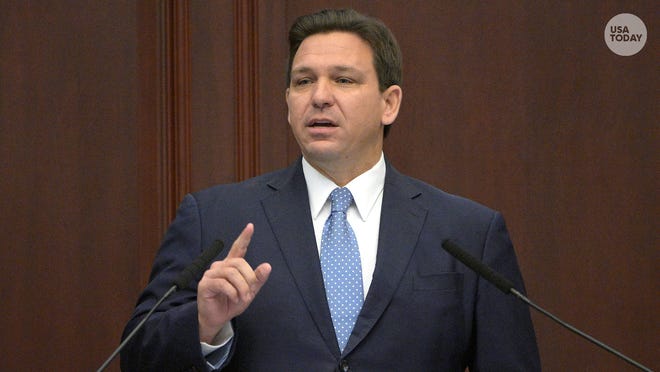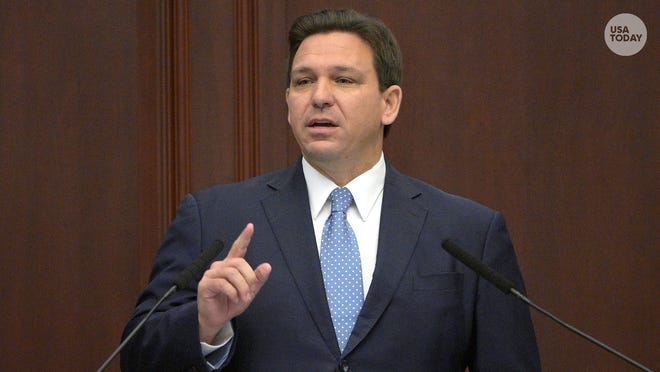[ad_1]
Maybe our state legislators just aren’t good multi-taskers.
For the second time since its regular session ended March 14, the Florida Legislature is scheduled to return to Tallahassee for a special session.
The first was ostensibly called to address legal questions about the state’s proposed redistricting maps, although an add-on item punishing Disney for daring to speak out against the so-called “Don’t Say Gay” bill dominated state and national headlines.
When lawmakers return to work Monday, they will be charged with finding solutions to an insurance crisis that just this past week saw one of the top 10 largest home insurers in Florida, Fort Lauderdale-based FedNat and its related companies, cancel 68,200 policies in a plan approved by the state insurance regulator. Homeowners have about five weeks to get new policies.
The crisis also has caused homeowners’ rates to skyrocket and left other private companies struggling with solvency.
Insurance isn’t sexy. Tweaking the industry’s convoluted laws isn’t likely to fire up certain groups of voters the way some hot-button cultural issues do.
Yet these laws affect everyone in Florida who owns property or would like to own it. Insurance rates are directly linked to housing affordability, another huge issue in Florida.
A glaring omission:Florida failed to pass major homeowners insurance bills
Opinion:Florida homeowner insurance rates keep rising despite reforms
Our View:After dessert, Florida Legislature wraps up session full of missed opportunities

Over the past two years, the Florida insurance industry has experienced net underwriting losses exceeding $1 billion annually. Guess who gets to make up those losses? Policyholders do, in the form of higher insurance premiums.
One part of the problem is a system that makes it too easy for unscrupulous contractors, supposedly acting on behalf of homeowners, to sue insurance companies for meritless or overstated claims.
According to the state’s Office of Insurance Regulation, Floridians filed 9% of the nation’s total homeowners insurance claims, but accounted for 79% of the lawsuits over disputed homeowners insurance claims.
Those lawsuits drive up insurers’ costs, which takes us back to the premiums all of us — litigants and non-litigants alike — must pay.
Lawmakers must take meaningful steps to discourage meritless lawsuits without shutting down the process for people seeking fair compensation for legitimate claims. We’re the Sunshine State, not the Sue Me State.
Another area of interest should be the Florida Hurricane Catastrophe Fund, which was established as a safety net for insurance companies that experience significant losses from storm damage claims.
Insurance companies pay fees, sometimes called “hurricane taxes,” to support the fund. Then insurers that experience losses above a certain threshold can tap the fund so the amount of money they need to recover from their own policyholders isn’t as great.
In concept, it’s a good idea. However, the fund has nearly $16 billion in reserves, twice as much as the state’s reserve fund.
Reducing the hurricane taxes could benefit policyholders by keeping their rate increases down. Lowering the loss threshold so insurers could become eligible to tap into the fund more quickly might also ease upward pressure on insurance rates.

For months, the TCPalm editorial board has been advocating for a state law requiring regular inspections of high-rise condominium buildings to prevent another tragedy like the one that killed nearly 100 people in Surfside and left many others homeless.
Regular inspections could help identify potential building problems sooner, allowing for repairs before conditions deteriorate to a point where major insurance claims are necessary.
Homeowners, not insurance companies, should be responsible for maintaining their homes. Homeowners should be incentivized by insurers to do so in an effort to keep claims and rates down.
Some of these areas of potential reform were discussed by legislators during this year’s regular session, but for whatever reason, they weren’t approved before the session ended.
Maybe this time, with lawmakers’ focus narrowed, they’ll be able to get more accomplished. That is, unless someone finds another mouse to chase.
Editorials published by TCPalm/Treasure Coast Newspapers are decided collectively by its editorial board. To respond to this editorial with a letter to the editor, email up to 300 words to TCNLetters@TCPalm.com.
[ad_2]
Source link






